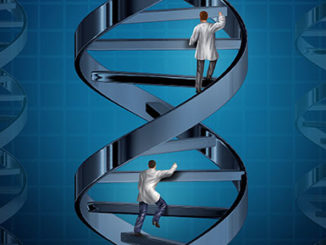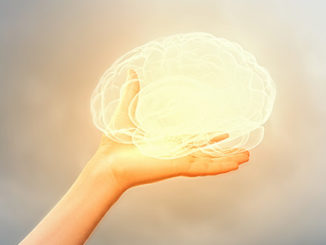Articles that explore the connection between epigenetics and diseases and disorders, including cancer, cardiovascular disease, diabetes, autoimmune disease, and more.
CRISPR/Cas9 is receiving a lot of buzz as a precise gene editing tool, but did you know it may also be an epigenome editing tool? Scientists from the Salk Institute used a modified CRISPR/Cas9 technique to alter gene activity rather than altering the actual underlying gene itself. They accomplished this in mouse models with disease-associated genes, treating several different diseases including kidney disease, muscular dystrophy, and type 1 diabetes. In 2014, What is Epigenetics covered the breakthrough of CRISPR/Cas9 and [more…]
Have you ever heard the old saying “you are what you eat?” This is not just an expression anymore, as scientists have discovered that we are what we eat and possibly even what our parents or grandparents ate. As surprising as it sounds, a pregnant woman’s diet and lifestyle, as well as the diet of an infant in his or her first years of life, may shape the child’s lifelong health or cause them to be more disease prone, not [more…]
Fascinating new research out of Drexel University suggests that restoring balance to certain epigenetic enzymes might reinstate memory and lead us closer to a potential therapy for Alzheimer’s disease. This devastating type of dementia causes issues with memory, cognition, and behavior. Could epigenetics help reverse symptoms and bring back cognitive abilities in those with Alzheimer’s? The symptoms usually appear gradually and worsen over time, such as memory loss, difficulty planning or solving problems, and confusion with time or place. According [more…]
When it comes to reproductive health, it’s no secret that a pregnant mother’s choices and environment can severely impact her child’s epigenetics and health—especially mothers suffering from PTSD. But it turns out fathers who have suffered significant stress early on in their life may also epigenetically impact the physical and mental health of their offspring. It was previously thought that fathers only passed DNA to the mother’s egg during fertilization, but it was recently discovered that sperm also contributes miRNA, [more…]
Organic foods are rather popular in shopping baskets nowadays. After all, avoiding those pesky pesticides that are used on a vast amount of produce is surely good for our health. But what about the health of our children and their children thereafter? We already know that the life experiences of our mothers and fathers can influence the epigenetics in their children. Epigenetics may also be ‘remembered’ through the phenomena known as transgenerational inheritance; so the pesticides your great-granddad may have [more…]
Many of us are familiar with the foods that damage our bodies – they slow our metabolism, might add a few pounds, and stiffen our arteries. But what if certain food items could help or harm us in a place we may never have considered – like our DNA? A developing field called nutriepigenomics examines the connection between diet and chemical marks that can be attached to or removed from our DNA, thereby turning genes on or off. Many new [more…]
Running to the restroom is normal when you’ve got a full bladder ready to burst. But constantly feeling the urge to go multiple times a day can be uncomfortable and debilitating, especially if it’s accompanied by severe pelvic pain. For those suffering from interstitial cystitis (also called painful bladder syndrome), this is an unfortunate reality – one that is often misdiagnosed and challenging to treat. In a recent study published in Scientific Reports, researchers from the US and Korea may [more…]
Adiposity is a condition of being severely overweight or obese and it has numerous connections to epigenetics. Understanding more about the epigenetics underlying obesity could help to introduce preventions based on lifestyle changes which may be able to modify our epigenetic marks and improve health. A rough measure of obesity is body mass index, BMI, which can be calculated by dividing one’s body weight in kilogram by the body height in square meters. According to the World Health Organization (WHO) [more…]
For decades, we’ve known how important it is to receive proper nutrition during early stages of life. Nutritional experiences in the beginning of development can set the stage for many things, including body weight, and can even affect the risk of obesity as we get older. Recent research supports the idea that poor nutrition at the beginning of pregnancy or while a baby is nursing can be stored as molecular epigenetic “memory” on the child’s genome, potentially setting them up [more…]
Alzheimer’s disease (AD) is a complex neurodegenerative disease that occurs due to an accumulation of amyloid plaques and neurofibrillary tangles in the brain. It affects over 5 million Americans of all ages, particularly those over 65 years of age and is one of the leading causes of death in the US. Currently, there are no sure ways to cure, prevent or even slow down progression of the disease. It is believed to be caused by a combination of genetic and [more…]










